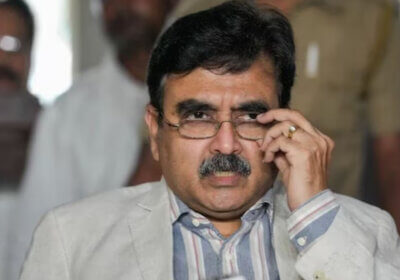Non-Alignment Movement and Panchsheel Principle
Non-Alignment Movement was formed as a conglomerate of nations during the cold war between the USA and the Soviet Union. This was basically the group of nations who signed a charter of not siding with either of the nations during the cold war. These nations choose to remain formally independent from the cold war or neutral. The foundation of the non-alignment movement was placed in 1955 at Asia-Africa Bandung Conference in Indonesia.
The then prime minister of India Pt. Jawahar Lal Nehru who was effectively a global leader was the founding member of the non-alignment movement which was essentially based on the core ideas of the ‘Panchsheel Principle’. The panchsheel principle was documented for the first time in 1954 between India and China to lay the foundation of the Indo-China international relationship.
The Five Principles of the Panchsheel Agreement are as follows:
1.Mutual respect for each other’s territorial integrity and sovereignty
2.Mutual non-aggression
3.Mutual non-interference in each other’s internal affairs
4.Equality and mutual benefit
5.Peaceful co-existence
These principles cover the economic as well as security dynamics between 2 states for progressive coexistence. Historically these principles stood for 8 years till 1962 when the Sino-India war broke out.
The 5 principles of the panchsheel agreement were later expanded into 10 concepts that constituted the Non-Alignment Movement. Some of the important principles from the non-alignment charter are as follows:
-Respect for the principles enshrined in the charter of the United Nations and international law.
-Respect for sovereignty, sovereign equality, and territorial integrity of all States.
-Peaceful settlement of all international conflicts in accordance with the charter of the United Nations.
-Respect for the political, economic, social, and cultural diversity of countries and peoples.
-Defense and promotion of shared interests, justice, and cooperation, regardless of the differences existing in the political, economic, and social systems of the States, on the basis of mutual respect and the equality of rights.
-Respect for the inherent right of individual or collective self-defense, in accordance with the charter of the United Nations
-Non-interference in the internal affairs of States. No State or group of States has the right to intervene either directly or indirectly, whatever the motive, in the internal affairs of any other State.
-Promotion and defense of multilateral-ism and multilateral organizations as the appropriate frameworks to resolve, through dialogue and cooperation, the problems affecting humankind.
Some of the major objectives of NAM were:
NAM has aimed to “create an independent path in world politics that would not result in member States becoming pawns in the struggles between the major powers.”
It identifies the right to independent judgment, the struggle against imperialism and neo-colonialism, and the use of moderation in relations with all big powers as the three basic elements that have influenced its approach.
At present, an additional goal is facilitating a restructuring of the international economic order.
India was the largest member nation of the Non-Alignment Movement and its very important founding member. As of 2018, there are 120 nations associated with the NAM. It can be argued that India’s relevance to the group remains as important as it was at the time of formation under Pt. Jawaharlal Nehru because the panchsheel principle pact failed to avoid the Sino-India wars and Indo-Pak wars, but that doe not mean that the intention behind this formation of nations was weak or short-sighted, the world has seen the effect of all the nations taking sides in a war of major powers in 2 world wars. Hence, the Non-Alignment Movement and the Panchsheel Principle hold a lot of significance even today as we have recently seen that the Indian government led by Prime Minister Narendra Modi took the non-alignment stance in the Russia-Ukraine conflict, so to say the significance of these principles it is very much there in international relations and being practiced by different countries on various instances when a bipolar struggle is formed.

Jawahar Lal Nehru a world leader























Leave a Reply